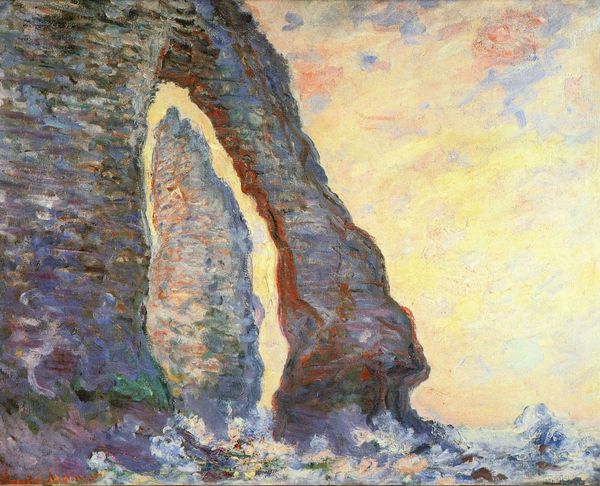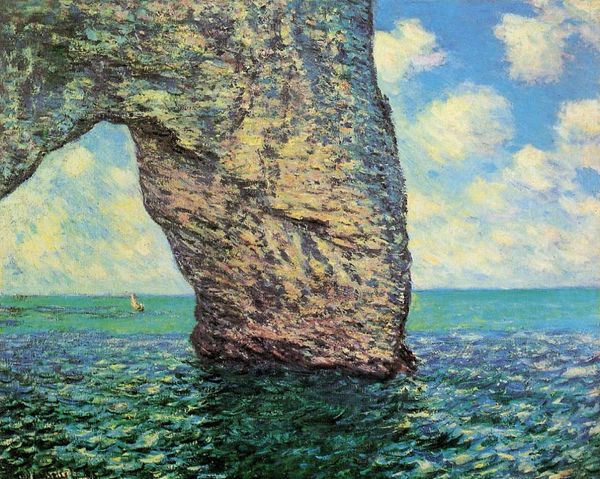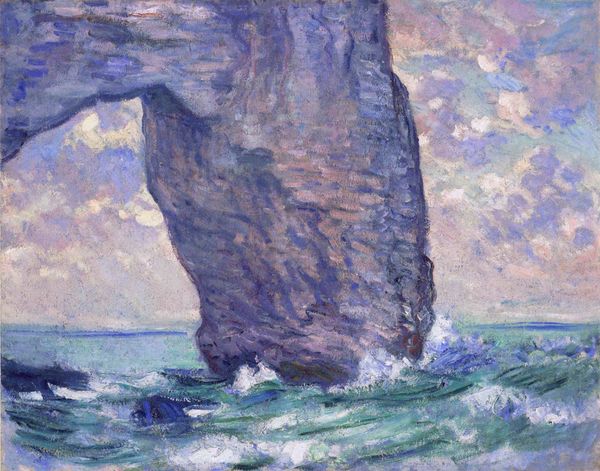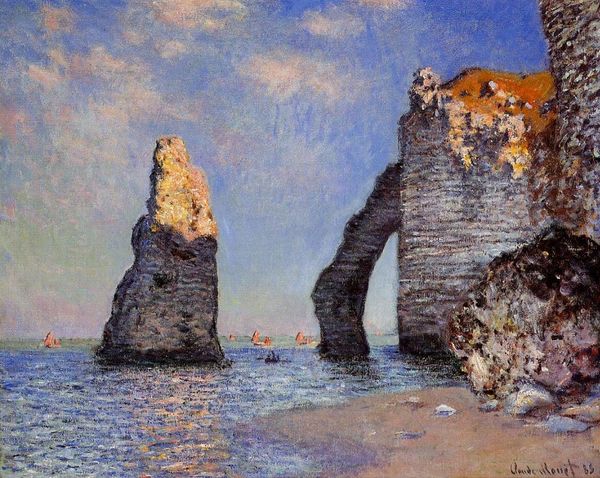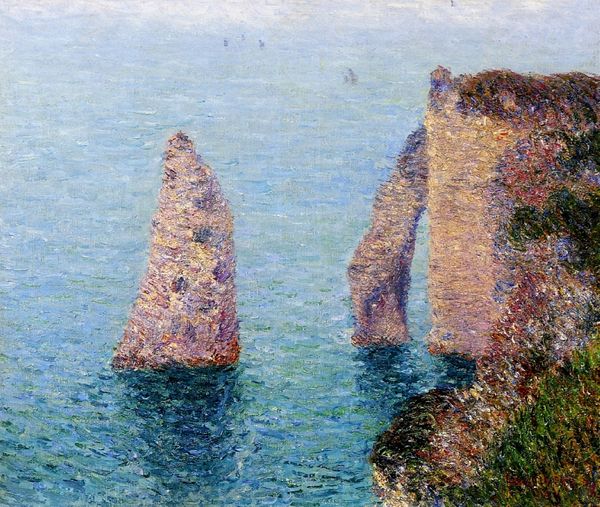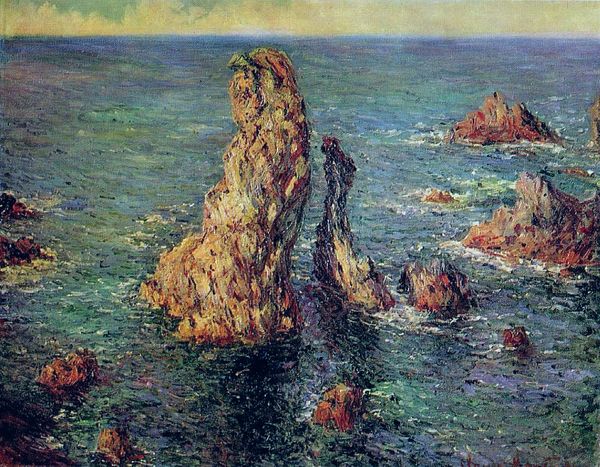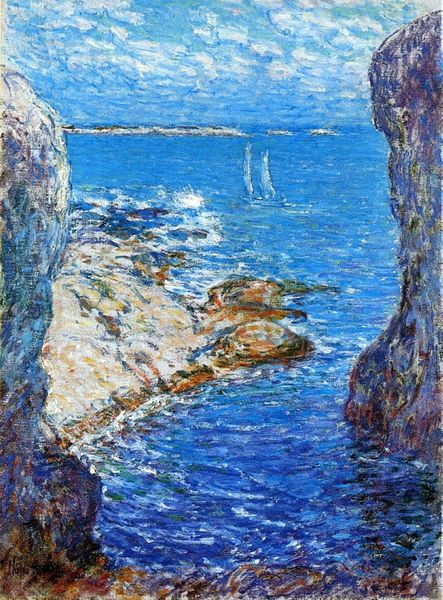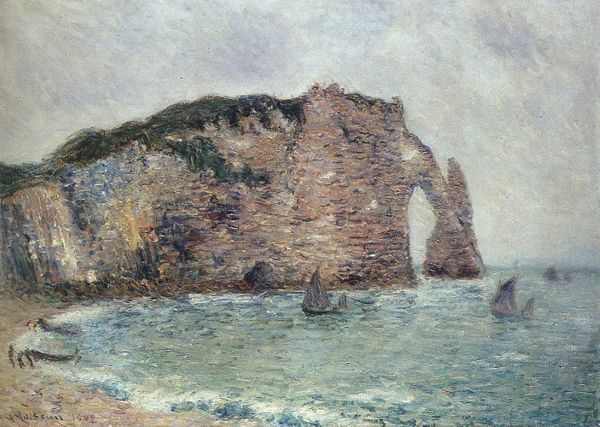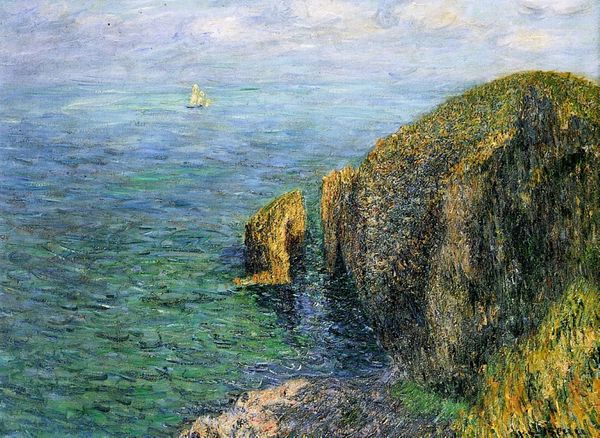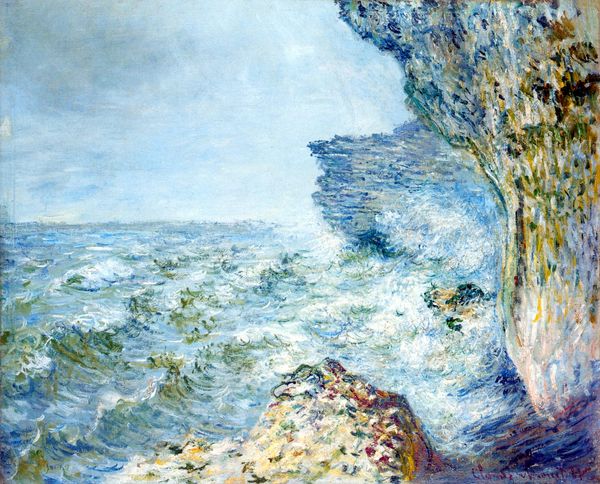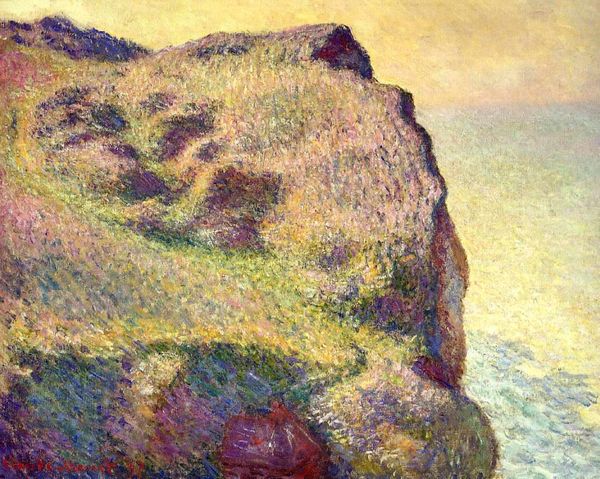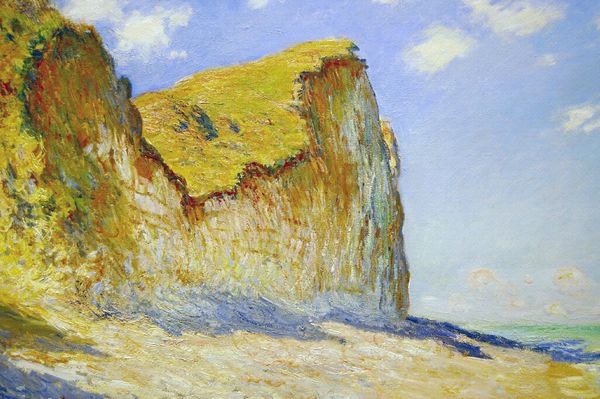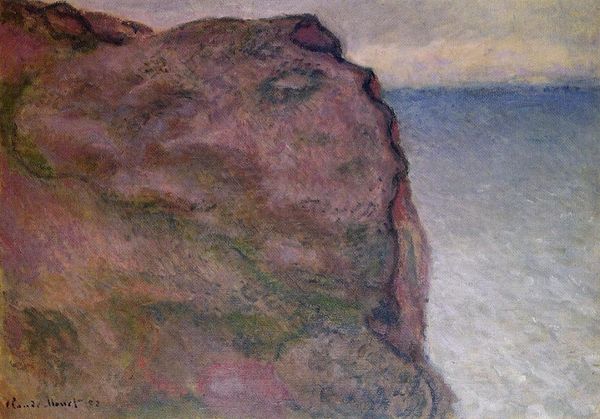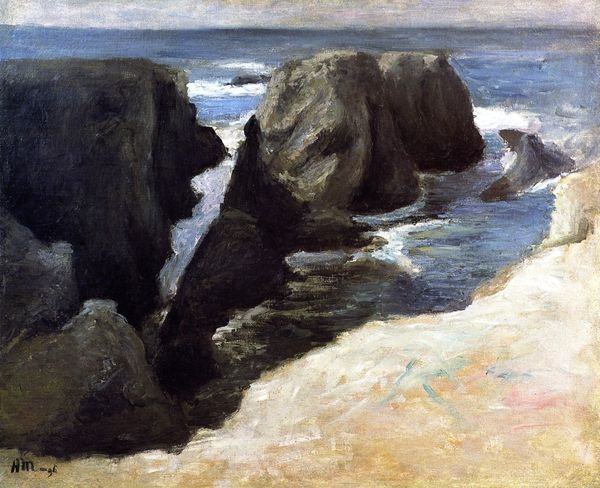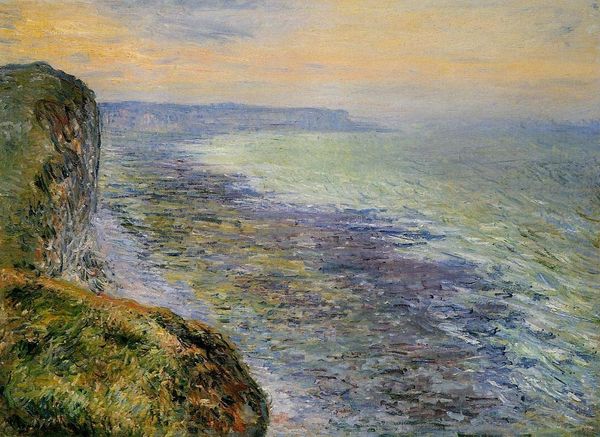
painting, plein-air, oil-paint
#
cliff
#
painting
#
impressionism
#
plein-air
#
oil-paint
#
landscape
#
impressionist landscape
#
oil painting
#
rock
#
seascape
Copyright: Public domain
Editor: Here we have Claude Monet's "The Manneport near Etretat," painted in 1886. It's oil on canvas, depicting this massive rock formation. I’m struck by how solid and imposing it feels despite the fluidity of the brushstrokes. What do you see in this piece? Curator: The Manneport carries with it a cultural memory. Cliffs often symbolize resilience, enduring through time, while the ocean crashing against them represents constant change. Monet captures this eternal dialogue, doesn't he? The red hues on the cliff's peak might symbolize sunset, or even fire, a vital force but also one of destruction. What does the shape of the arch suggest to you? Editor: That's fascinating! The arch makes me think of a gateway. Is that symbolic? Curator: Absolutely. A gateway is a powerful symbol – it suggests transition, a passage from one state to another. Here, perhaps, Monet is reflecting on the transient nature of life itself. Consider also the colours – blues for tranquility, juxtaposed with the turbulent, textured surface of the rock. It mirrors our own internal conflicts and search for peace. Do you think this was on Monet's mind? Editor: It makes you wonder! I had only thought of it as a pretty picture, but now I see these deeper layers. Curator: Monet was exceptionally perceptive. By observing and rendering fleeting light on this geologic structure, he reveals not just a place but an experience embedded with cultural weight and personal reflection. And we viewers project our own understanding on that space too! Editor: I’ll never look at another landscape painting the same way. It’s all about what we bring to it and what the image evokes. Curator: Precisely. Images hold a shared visual language, allowing viewers, separated by time and culture, to perceive something meaningful.
Comments
No comments
Be the first to comment and join the conversation on the ultimate creative platform.
